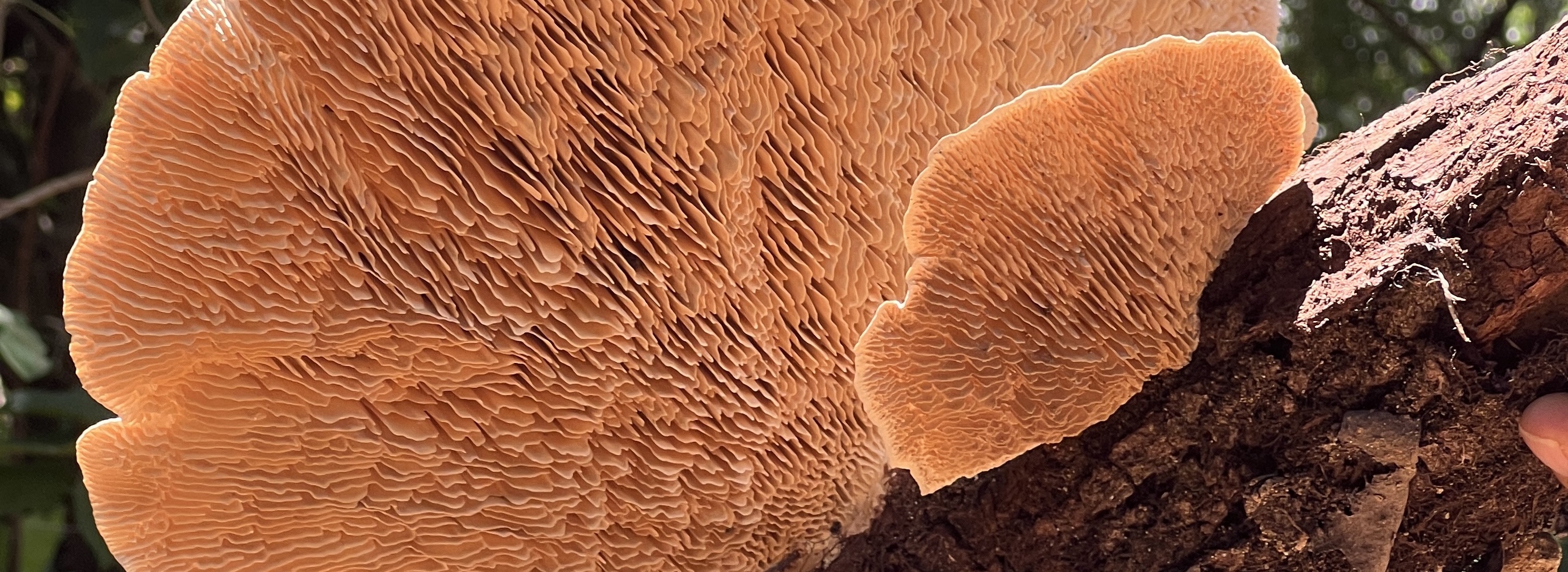
Monteverde Institute: Tropical Ecology and Conservation
Alternative Title
Inhibición de crecimiento de hongo por agallas de Quercus cortesii y la presencia de invasores de agallas
Files
Download Full Text (289 KB)
Publication Date
May 2017
Abstract
Galls are abnormal plant growths induced by highly specialized arthropods and are used as a food source and for protection for the developing larvae. The chemical composition within galls is known for containing high levels of tannins, which have anti-fungal and anti-herbivory properties. This study focuses on the effect of tannins and other chemicals extracted from Quercus cortesii galls on the inhibition of the fungi Mycena citricolor. This study also explores the presence of gall-invaders such as arthropods and vertebrates. Two methods of treatment were used to determine the effect that tannins and other chemicals extracted from cynipid wasp galls found on the tree Quercus cortesii, have on fungal growth. One method, denoted as tannin agar, tested a tannin-infused substrate and showed that fungal growth is inhibited by the presence of gall extracts. The other method, denoted as tannin droplets, tested the effect of tannins after the fungus had already been established and showed no effect on the fungal growth. All of the data was analyzed using a one-way ANOVA and found that the tannin agar treatment had significantly less fungal growth and slower growth rate than the control treatment. The tannin droplet treatment showed no difference in fungal growth and growth rate when compared to the control treatment. Twelve galls were also collected and dissected to determine whether arthropods invade and use the gall after the cynipid wasps have left. At least thirty morpho-species of arthropods use the galls for feeding and protection. Additionally, it was observed that as the gall becomes wet, the diversity of morpho-species decreases. Lastly, camera traps revealed coatis could also be using the fallen galls to feed from.
Resumen
Las agallas son crecimientos anormales en las plantas inducidos por artrópodos altamente especializados. Las larvas en desarrollo utilizan las agallas como fuente de alimento y protección. Las agallas contienen altos niveles de taninos, los cuales tienen propiedades anti-fúngicas y anti-herbivoría. Este estudio se enfoca en el efecto de los taninos y otras sustancias químicas extraídas de las agallas de Quercus cortesii sobre la inhibición del hongo Ojo de Gallo Mycena citricolor. Este estudio también explora la presencia de invasores de las agallas tales como artrópodos y vertebrados. Se utilizaron dos métodos de tratamiento para determinar si los taninos u otros químicos presentes en las agallas afectan el crecimiento de hongos. El primer método (Agar con taninos) probó con un sustrato de agar mezclado con tanino que estos compuestos inhiben el crecimiento de hongos. El segundo método (Gotas de tanino) probó el efecto de los taninos después de que el hongo ya se había establecido y no mostró ningún efecto sobre el crecimiento de hongos. El tratamiento con agar de tanino tuvo un crecimiento de hongos significativamente menor y una tasa de crecimiento más lenta que el tratamiento de control. También colecté y disecté 12 agallas para determinar si habían otros artrópodos invasores de agallas luego de que la agalla había caído del árbol. Al menos 30 morfo-especies usan estas agallas para alimentación o protección. Además, se observó que a medida que la agalla está más húmeda, la diversidad de morfo-especies disminuye. Por último, las trampas de cámara revelaron que los pizotes también podrían estar utilizando las agallas para alimentarse.
Keywords
Arthropods, Fungi, Galls (Botany), EAP Spring 2017
Palabras claves
Artrópodos, Macrohongos, Galls (Botánica), EAP Primavera 2017
Extent
8 pages
Geographic Location
Monteverde (Puntarenas, Costa Rica)
Holding Location
Monteverde Institute
Language
English; Spanish
Media Type
Articles
Format
Digital Only
Identifier
M39-00621
Type
Book
Recommended Citation
Simon, Samantha E., "Fungal growth inhibition by Quercus cortesii galls and the presence of gall-invaders, May 2017" (2017). Monteverde Institute: Tropical Ecology and Conservation. 430.
https://digitalcommons.usf.edu/tropical_ecology/430


